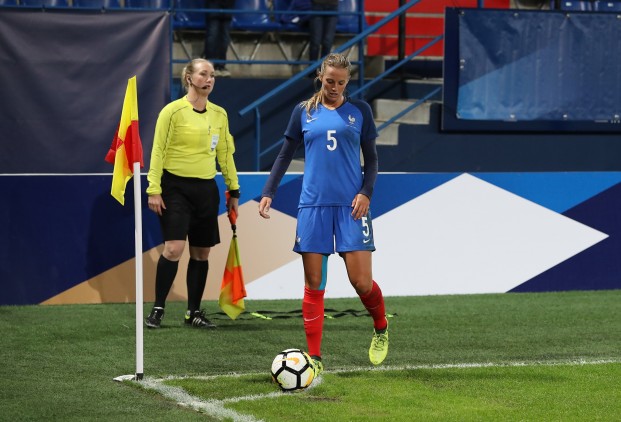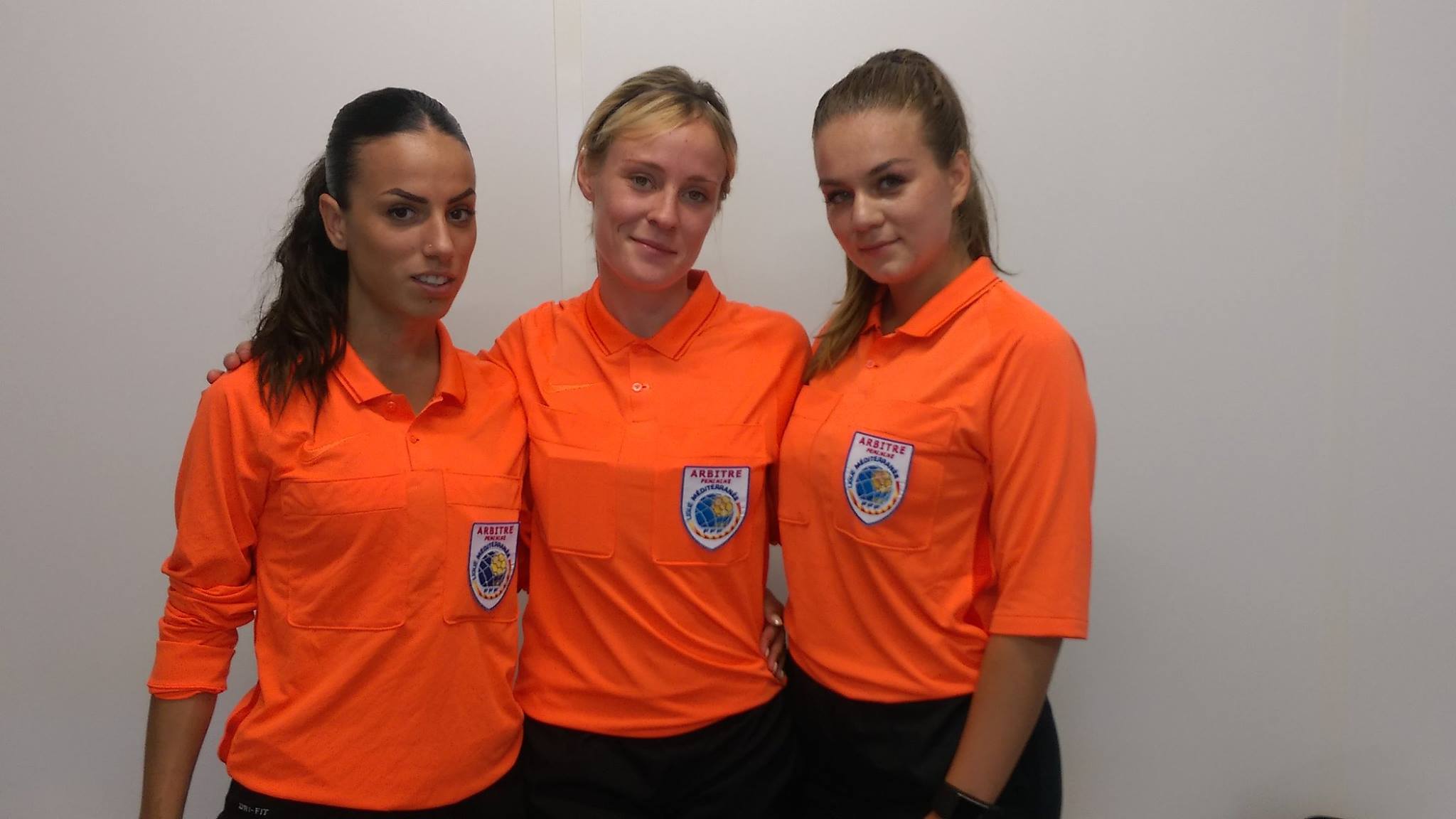Photo: Renaud Joubert / Charente Libre
There are sometimes paradoxical situations, that of the ASJ Soyaux may be part of it. As the club prepares to celebrate its 50 years, a remarkable longevity in French women's football, it is a dark affair that could spoil the party on this end of the season.
A story of contracts, discovered through the case of Allison Blais who, after two seasons and fifty matches played with the club of Charente, joined this winter the Dijon club in D2. A departure that took place while his situation in Soyaux became unsustainable, both on a contractual and human level.
A history of contract (s)
It all started last summer when Allison signed a fixed-term contract with the club. A one-month term (from August 1st to 31st) with the status of "Non-Professional Player", but where the bulk of her activities with the club consists of taking part in training sessions and matches of the team on weekends. end, it is besides the only function which is explicitly mentioned in its contract. Apart from her job as a "non-professional" footballer, her only real activity was coaching young people on Monday afternoons.
A part-time contract and a salary that exceeds the thousand euros, but for the former Sojaldicienne, she did not see herself as a "pro player" even if her (modest) incomes at the time were exclusively related to this contract with the club. A contract she saw at the time as an "arrangement" with ASJ Soyaux, proposed by Sebastien Joseph, coach of the first team since this season, and that Allison Blais considers the main leader of Soyaux. For her, "it is the coach who runs [today] the club".
An arrangement while Allison did not have a job at the time. Upon her arrival at ASJ Soyaux in 2015, she found a job at Schneider Electric through the club. A job she loses before finding another one in "factory". The president of Soyaux, Marylin Fort, also evokes a "civic service" with the club and that Allison "did not honor" until the end. A lack of seriousness that would have led the leader to put a "question mark", when Sebastien Joseph proposed to retain Allison Blais in the workforce last summer.
Deviations of conduct that the attacker recognizes directly. She tells us about the role played by Jean Paredes, coach of the first team when he arrived in Soyaux, and who was "like a father" for her in the club, showing patience with her at times when she could have "messed up".
A sports imperative that sweeps the rest
In the summer of 2017, unemployed in Soyaux, she also asks the question of leaving the club with serious tracks in D1. This proposal of the new coach is also an argument and a way to make her stay at the club. A situation in which the athlete has won. As Marylin Fort explained, Sébastien Joseph, the new coach "absolutely wanted" to keep Allison in the squad.
The arrangement originally planned and proposed by the club was that Allison would have a contract for the season, which would begin in September, after a first contract in August. This contract would be in two '' pieces '': a part-time contract with the club for the football game, and another, also part-time, with one of the club's partners. Yet Allison found herself in a situation where her only contract was the one that bound him with the club for his footballing activity.
Technically, this situation turns Allison into a professional player. In the FFF regulations, a player with amateur status only receives "additional income" from her football practice (Article 47 - General Regulations). From a legal point of view, the status of professional sportswoman refers to "any person whose remunerated activity involves the exercise of a sports activity in a relationship of legal subordination [here a contract note]" (Article 222-2, Sport Code). Moreover, the pay slips of Allison Blais over this period mentions that she would be a "professional player", a situation that has never been approved by the FFF, especially since Allison had Soyaux 'a player license' 'amateur' '.
Has the club management fooled?
Federal contracts, Allison Blais has signed in the past to Guingamp and PSG. In Soyaux, she knows that this contract is not one, especially since she has always had amateur status since joining the club. But initially, she imagines that this agreement reflects a framework of trust internally. Allison believes today that if things had gone better, she probably would not have "opened her mouth".
This logic of "arrangement" is also advanced by Marylin Fort, who believes that this solution has been proposed in all "good faith" and perhaps with a certain "naivety". For her, in Soyaux, the club wants to be "close to our players" and things are always done with "benevolence". For her, the presence of agents, now unavoidable in the entourage of the players, has helped to poison things and try to "earn money" taking advantage of this situation.But over time, the atmosphere is deteriorates and the conflict culminates after his contract has been extended for three months until November 30th. At the end of the month, she tells us she was summoned by Marylin Fort, the club's president, who told her that she had a month to prepare her business and leave the club at the end of December. For this purpose, a new amendment to the contract is signed until December 31st.
Cloakroom questions
A formal notice that goes with the drop in play time Allison, who plays his last match with Soyaux against Guingamp in early November. Since then, she has not played a single minute since she took part in every game since the beginning of the season.
The cause of this change is partly related to the fact that Allison no longer accepts the situation. First of all because of the precariousness in which she finds herself with endorsements signed as and when without guarantees, rather than a contract that covers the entire season, as provided by law.
She reports we have gradually realized that his contract was not declared to the FFF and that something seems wrong. Awareness and demands that link with the leadership of ASJ Soyaux and its coach. The atmosphere continues to deteriorate, with recurrent remarks to encourage him not to make waves.
But in this story, Allison Blais is not alone. At various times, she believes she has been able to count on the support of her teammates, both to understand the dubious nature of her contract but also to step up to the plate when they realize that Allison was put on the spot by the management of the team. club. It is also by discussing with some of her teammates that she discovers that she would not be the only one in this situation within the workforce Sojaldic.
An isolated case ?
She finally leaves the ASJ in January, although she would have received a letter early 2018 from the direction of Soyaux who does not understand his absence in training. One way to tell him that she took the initiative to break her contract with the club.
Yet, Allison Blais had a license amateur player. According to the regulations of the FFF, its situation is not possible. Nevertheless, in clubs, contracts with amateur players / players would be a widespread practice today. Theoretically only D1 (and D2) players under federal contracts are tied to their club by a contract. An agreement that must have an end date of June 30 of the year in which the contract in question ends (as specified in the status of the federal player). Contracts that must also be approved by the FFF.
The case of Allison Blais would have finally been revealing and other players could be concerned within the staff of Soyaux. According to Allison, they were "at least 5 girls" including herself to have this type of contract. Situations highlighted for example by the impossibility of making a loan in another D1 club, as for Allison Blais who finally joined Dijon in D2. It is also another example of a transfer abroad which would have been prevented at the last moment. Situations that would be largely related to the existence of these contracts signed with players of Soyaux.
The means of the board?
Today, Marylin Fort assures us that all current player contracts at the club have been extended until June 30th. When asked the president of Soyaux, she adds that all contracts are in "good and due form" and in accordance with the laws in force, including that of "November 27, 2015". A law which in its title aims to "preserve the ethics of sport, strengthen the regulation and transparency of professional sport and improve the competitiveness of clubs. "
This law strengthens the rights of high-level sportsmen and sportswomen, while recalling that the fixed-term contract is the norm in term of contract in the sports environment (unlike many sectors where it is the CDI). In the case of the contract of Allison Blais, several provisions introduced by the law of 27 November were not respected in his contract, both on the substance (football is his main source of income while considering that it is not professional) than on more formal aspects.
The fact that a club like ASJ Soyaux finds itself in this situation goes beyond the simple question of the responsibilities of each other in this matter. A situation for which the FFF as justice could be seized. In practice, the club seems to have sought ways to retain its best players even if the tools at its disposal did not allow it to do so legally.
Flirting with the red line leaves to cross at times, a temptation while the D1 is more competitive and therefore requires clubs to adapt or having to fade against structures that have more resources. It is also more cyclical factors such as the decrease in the number of subsidized contracts planned by the new government in 2017 and which limited a little more the possibility for the club to find work for the players who did not have a job at home. side of the football.
Consequences difficult to evaluate for Soyaux
Ironically, this issue was highlighted by Siga Tandia, the captain of ASJ Soyaux, during the presentation of the D1 at the beginning of the season, highlighting the significant differences in means between '' the locomotives '' of the championship and smaller clubs, such as Soyaux, which do not have the opportunity to line up.
Today, if as we explained Allison Blais, other players of the workforce would be affected by these contracts, Soyaux could actually suffer both financial and sports sanctions, even if a possible administrative demotion is a priori not on the carpet.
The main risk is that Soyaux will be withdrawn points if clubs deposit reserves at the time of the matches against the club of Charente, questioning the amateur status of the players today under paid contract with the club. This is also what happened last weekend with a reserve filed by the Fleury club at the reception of Soyaux in Essonne on the occasion of the 14th day of the championship.
One or more points withdrawals that could ultimately be expensive in Soyaux. A decision that belongs to the FFF and to which could be added financial penalties, suspensions or refusal of homologation for new federal contracts signed by the club.
While the season is still long, the ball is today in the camp Soyaux, who will have to find ways out of this situation from above. A necessity especially because the club lives a symbolically strong year of its history and that of women's football in France in which the Charente team has a special place. It is also, for the players who make up the workforce Sojaldic, know how to approach this end of the season at risk, but also the day after, which seems at the moment a little more uncertain.
Dounia Mesli & Hichem Djemaï




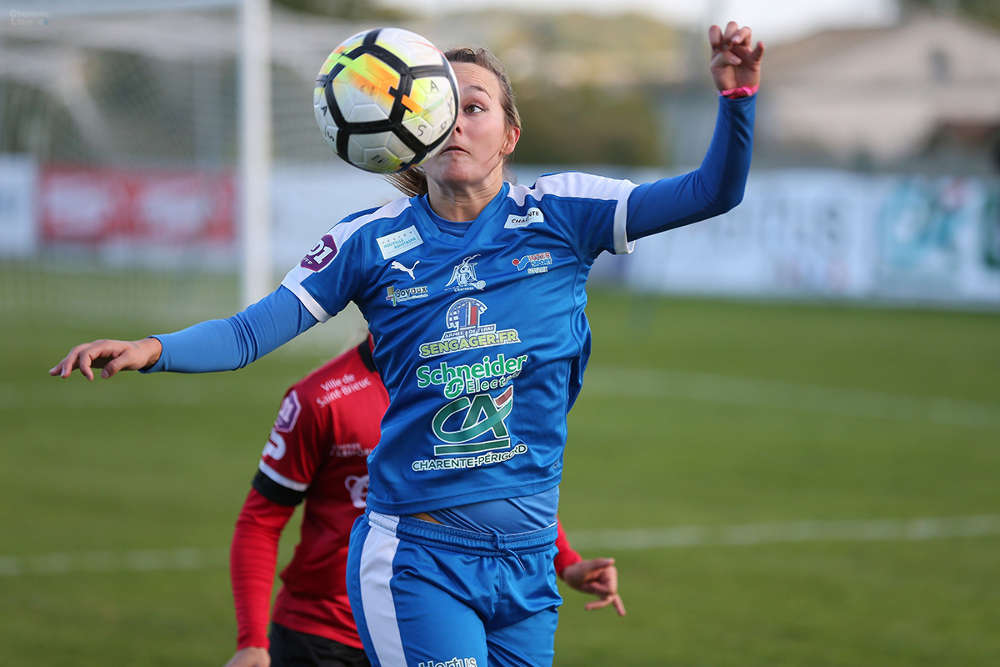


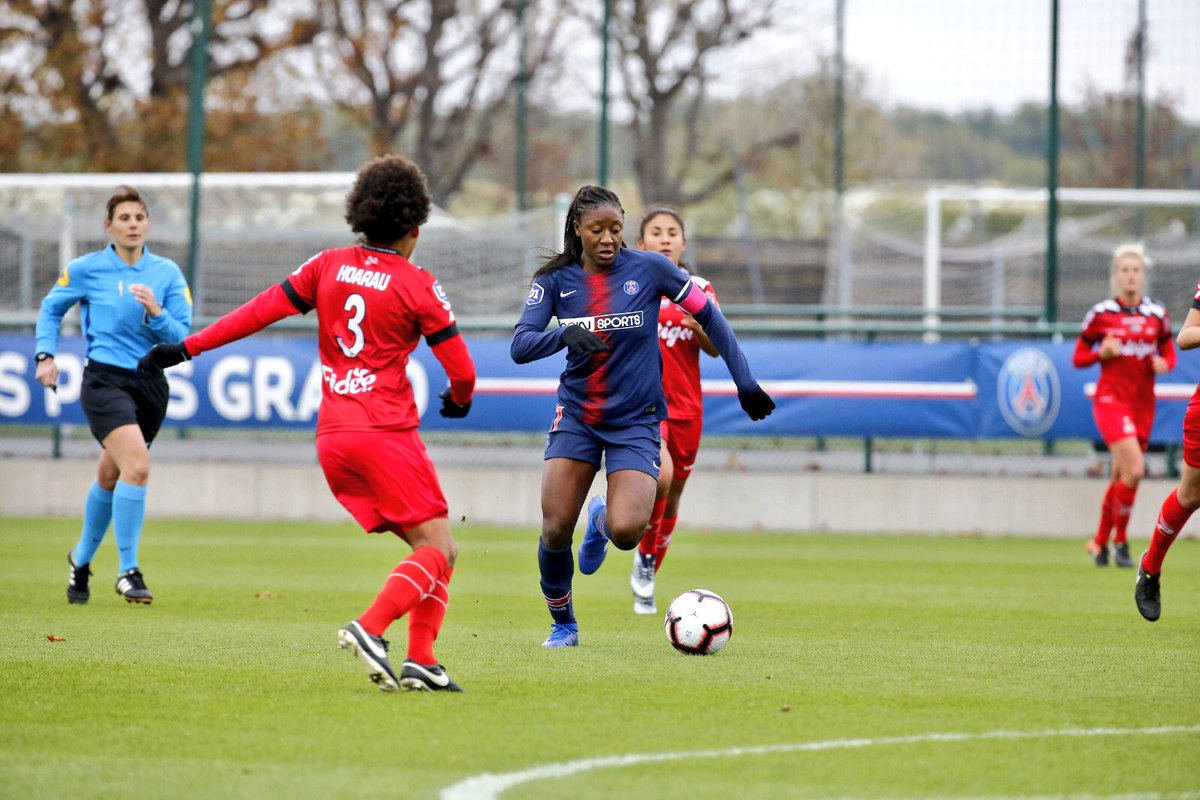
![[UWCL, 1 / 8th finals return] Chelsea puts out Fiorentina, Bayern and Wolfsburg at the rendezvous](/backEnd/images/article/bf6078d9cad58f3ec76f1c6d1562c8df.jpeg)
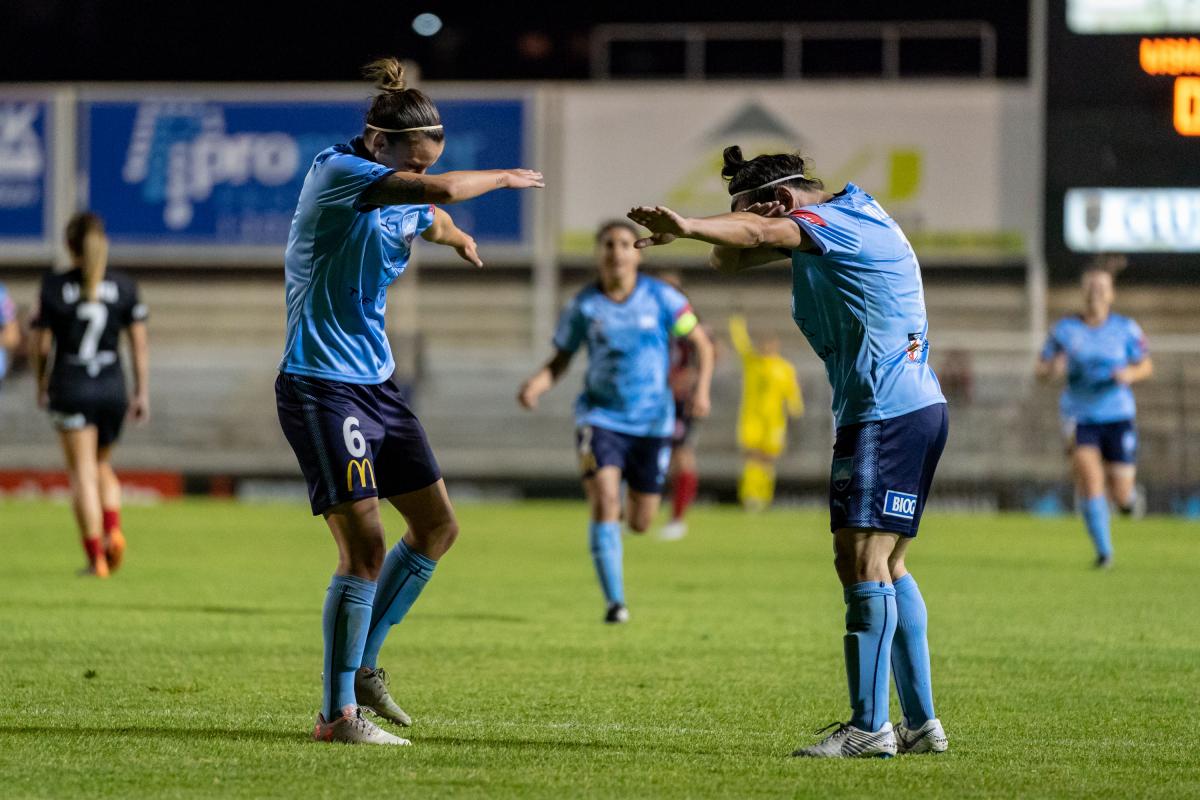



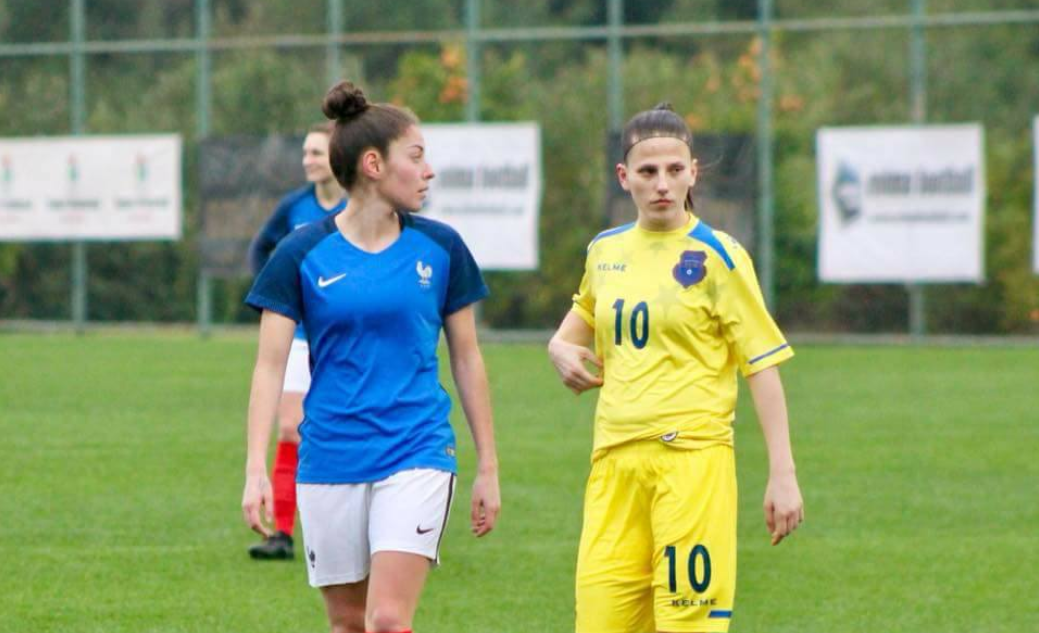

![[UWCL, 1 / 8e back] PSG - Linkopings (3-2): PSG cash, but valid his ticket for 1/4](/backEnd/images/article/3ab0e3eae3ed85022a807d575d8e5711.jpeg)
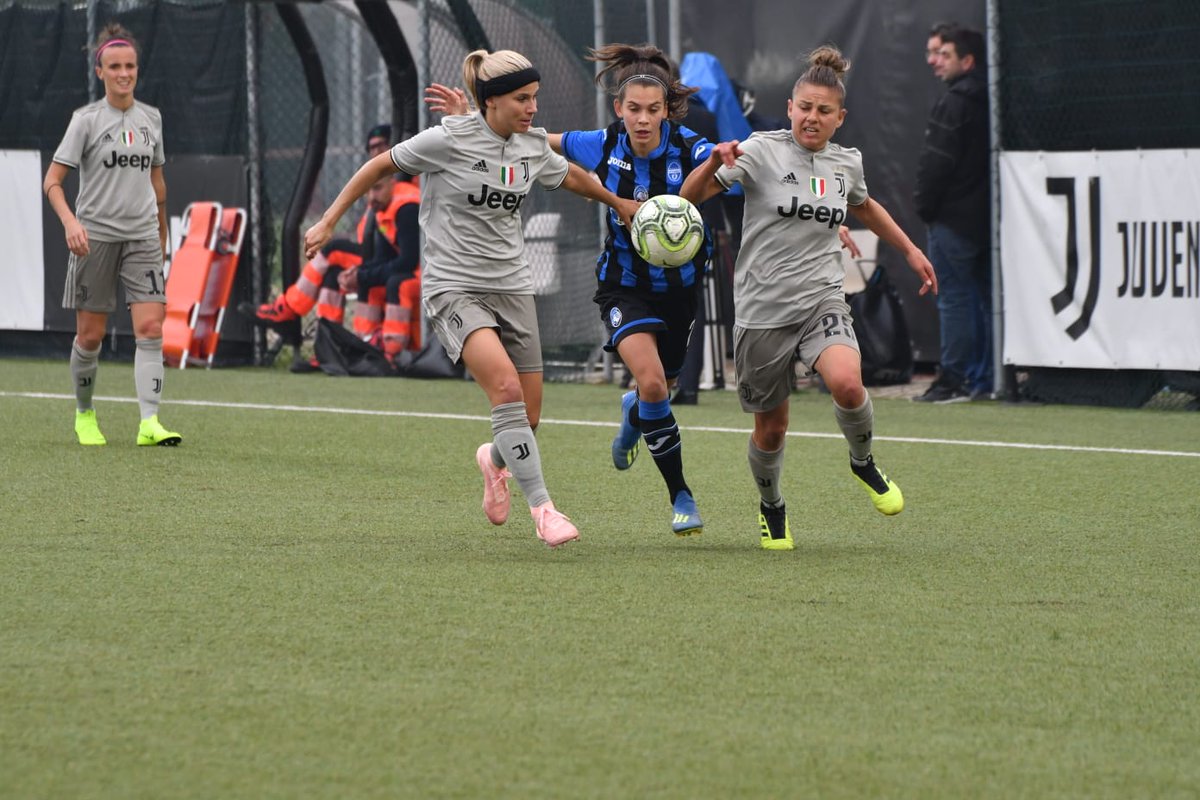
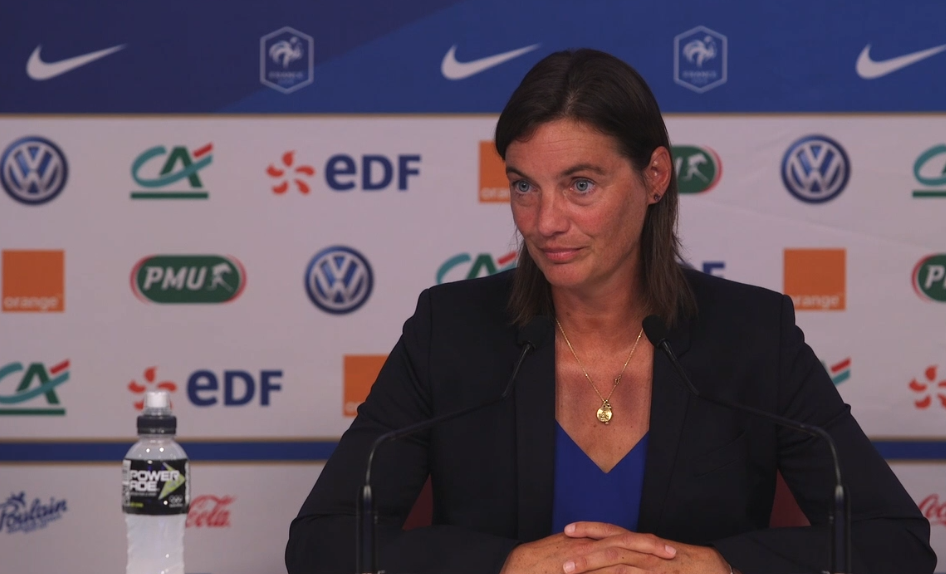


![[UWCL, 1 / 8e back] OL - Ajax (9-0): Lyon qualify for 1/4 after outclassing Ajax](/backEnd/images/article/d30f6b37cf9200d87c3668b1de114da5.jpeg)
